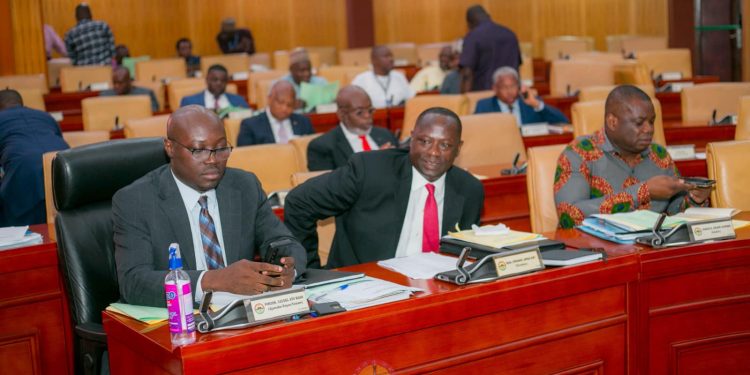Minority calls for the resignation of the CEO of COCOBOD

The Minority group in Parliament is calling for the immediate resignation of Joseph Boahen Aidoo, the Chief Executive Officer of the Ghana Cocoa Board (COCOBOD).
They assert that Aidoo’s management of the cocoa sector has been marked by mismanagement and has exacerbated the challenges faced by cocoa farmers. The Minority contends that he is no longer suitable for the CEO position.
Addressing the media in the Ashanti Region, Dr. Cassiel Ato Forson, the Minority Leader, expressed concerns about the deteriorating state of the cocoa sector, despite the announcement of a 68 percent increase in the producer price.
He stated, “Clearly, something is amiss at COCOBOD because we are seeing the production of cocoa coming down to the lowest in the last fifteen years and we have also seen them recording massive losses since 2017. Last year, according to their own audit report, we declared a loss of GH¢2.4 billion in one year and so I don’t see why the CEO should be in office despite these happenings.”
The Minority has accused Aidoo of both incompetence and corruption, arguing that he has failed to implement essential reforms to enhance the cocoa sector.
Furthermore, the Minority has criticized the government for allegedly shortchanging cocoa farmers by raising the price of a bag of cocoa to GHC1,300. According to them, cocoa farmers should have received at least GHC2,500 per bag.
During an interview, Eric Opoku, the Deputy Ranking Member on the Food, Agriculture, and Cocoa Affairs Committee of Parliament, strongly criticized the government for providing cocoa farmers with what he referred to as “peanuts.”
He expressed concern about the price offered to cocoa farmers and emphasized that this season presented an excellent opportunity for cocoa farmers to reap the benefits of their produce.





